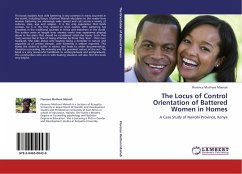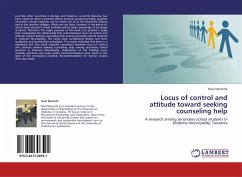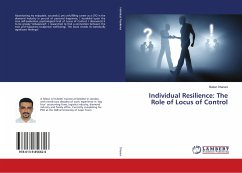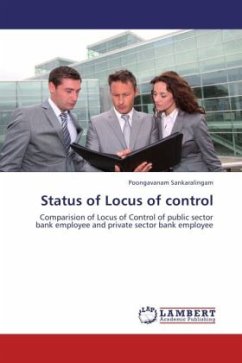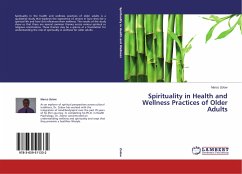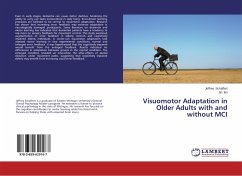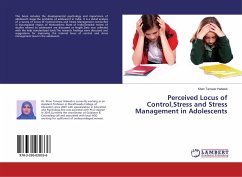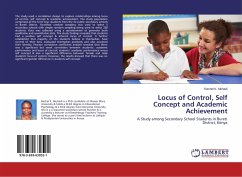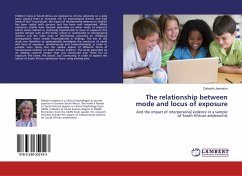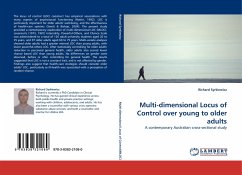
Multi-dimensional Locus of Control over young to older adults
A contemporary Australian cross-sectional study
Versandkostenfrei!
Versandfertig in 6-10 Tagen
39,99 €
inkl. MwSt.

PAYBACK Punkte
20 °P sammeln!
The locus of control (LOC) construct has empirical associations with many aspects of psychosocial functioning (Rotter, 1992). LOC is particularly important for older adults' well-being, and the effectiveness of health-care systems (Swett & Bishop, 2004). The present study provided a contemporary exploration of multi-dimensional LOC (MLOC). Levenson's (1973, 1981) Internality, Powerful-Others, and Chance Scale was administered to a total of 126 adult university students aged 20 to 35 years, and 97 older adults aged 60 to 75 years. Multi-variate analyses showed older adults had a greater interna...
The locus of control (LOC) construct has empirical associations with many aspects of psychosocial functioning (Rotter, 1992). LOC is particularly important for older adults' well-being, and the effectiveness of health-care systems (Swett & Bishop, 2004). The present study provided a contemporary exploration of multi-dimensional LOC (MLOC). Levenson's (1973, 1981) Internality, Powerful-Others, and Chance Scale was administered to a total of 126 adult university students aged 20 to 35 years, and 97 older adults aged 60 to 75 years. Multi-variate analyses showed older adults had a greater internal LOC than young adults, with lower powerful-others LOC. After statistically controlling for older adults' reduction in perceived general health, older adults also scored lower chance based LOC than young adults. No differences on gender were observed, before or after controlling for general health. The results suggested that LOC is not a constant trait, and is not affected by gender. Findings also suggest that health-care strategies should consider older adults' LOC, particularly as ill-health was associated with a perception of random-chance.



